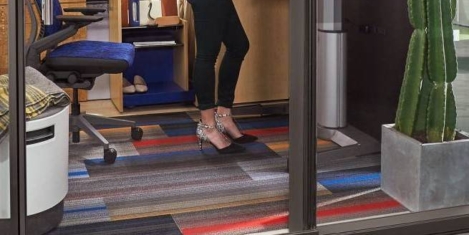September 18, 2017
The mega trends that continue to reshape the workplace around the world
Last week, over 600 workplace and property experts met in London at the CoreNet Global Summit 2017 to discuss some of the most important trends affecting the sector. The debates underlined one important fact about property and workplaces, which is how they are shaped by major, globalised events as much as they are local needs and the objectives of specific organisations. This quickly became evident on day one, which demonstrated how dramatic shifts in the geopolitical landscape, all of which are impacting corporate real estate – from America First to Brexit – remain key talking points for the industry. Opening speaker Linda Yueh (University of Oxford and London Business School) explored several possible scenarios, including how the focus of ‘Trumpism’ would have a significant effect on the U.S. role on the world stage, with the priority on the domestic economy leaving little scope for global trade. She also predicted that a ‘hard Brexit’, with no new trade deal with the EU, will be the most likely outcome for the UK’s withdrawal process; and that businesses will need to focus on alternative WTO rules as an urgent priority. Other impacting factors covered by Yueh included the rise of a dominant global middle class, and China’s need to rebalance its economic growth drivers.
(more…)
















 Organisations are taking serious security risks by allowing employees to access workplace IT systems remotely while on their summer holiday, a telecoms company has warned. According to research by the corporate IT and cyber-security arm of Deutsche Telekom, nearly a third of employees (31 percent) use free Wi-Fi hotspots, and nearly a quarter (24 percent) use them for work-related emails and documents. These are a big danger area as they are insecure and easy for hackers to clone (getting access to all email and web traffic, including any work documents and passwords). It also warns that 28 percent of employees email work documents to and from their personal email, despite this creating numerous security problems. Ten percent use free USB charging points at airports and stations; and these ports can be used to transfer viruses and malware to unsuspecting users. The blame cannot solely be placed on the employees though, as just 28 percent of employees have never in their working career had any cyber security training to protect themselves and their employer.
Organisations are taking serious security risks by allowing employees to access workplace IT systems remotely while on their summer holiday, a telecoms company has warned. According to research by the corporate IT and cyber-security arm of Deutsche Telekom, nearly a third of employees (31 percent) use free Wi-Fi hotspots, and nearly a quarter (24 percent) use them for work-related emails and documents. These are a big danger area as they are insecure and easy for hackers to clone (getting access to all email and web traffic, including any work documents and passwords). It also warns that 28 percent of employees email work documents to and from their personal email, despite this creating numerous security problems. Ten percent use free USB charging points at airports and stations; and these ports can be used to transfer viruses and malware to unsuspecting users. The blame cannot solely be placed on the employees though, as just 28 percent of employees have never in their working career had any cyber security training to protect themselves and their employer.













August 17, 2017
How workplace design shapes and reflects organisational hierarchies
by Angela Love • Comment, Facilities management, Workplace design
(more…)